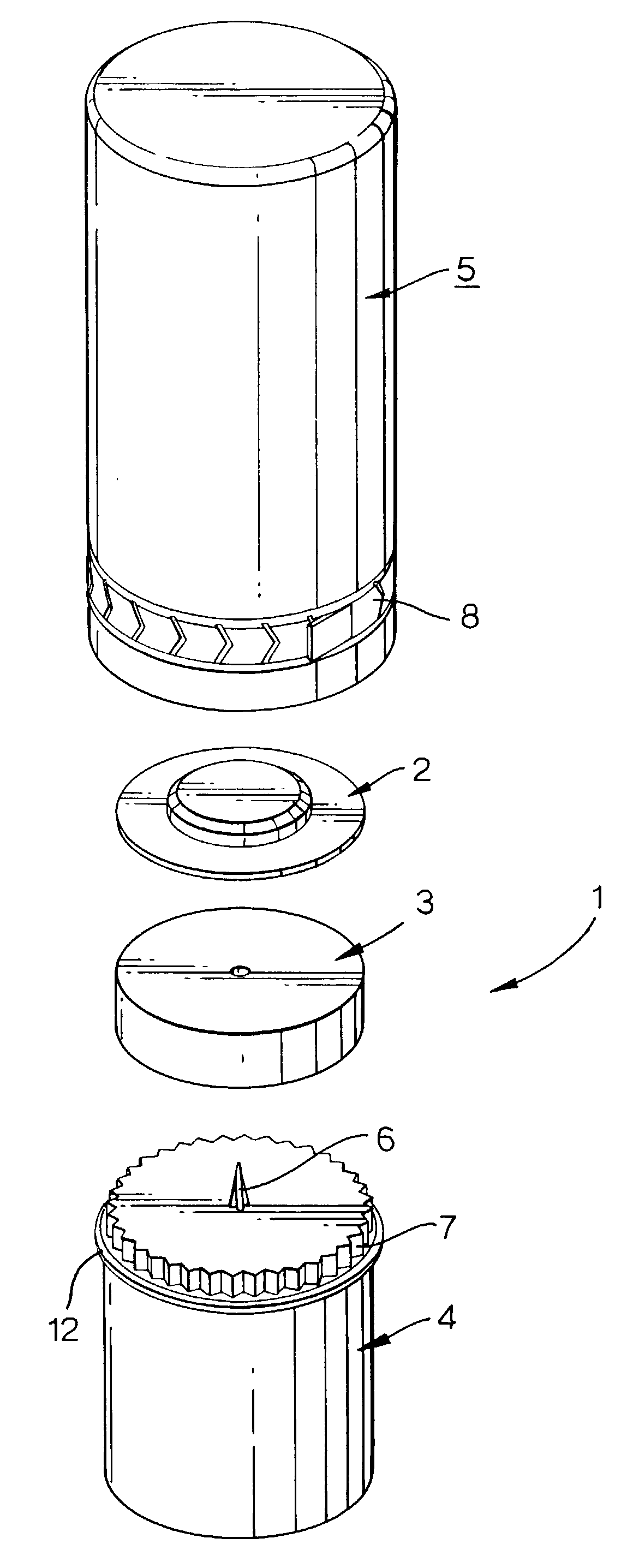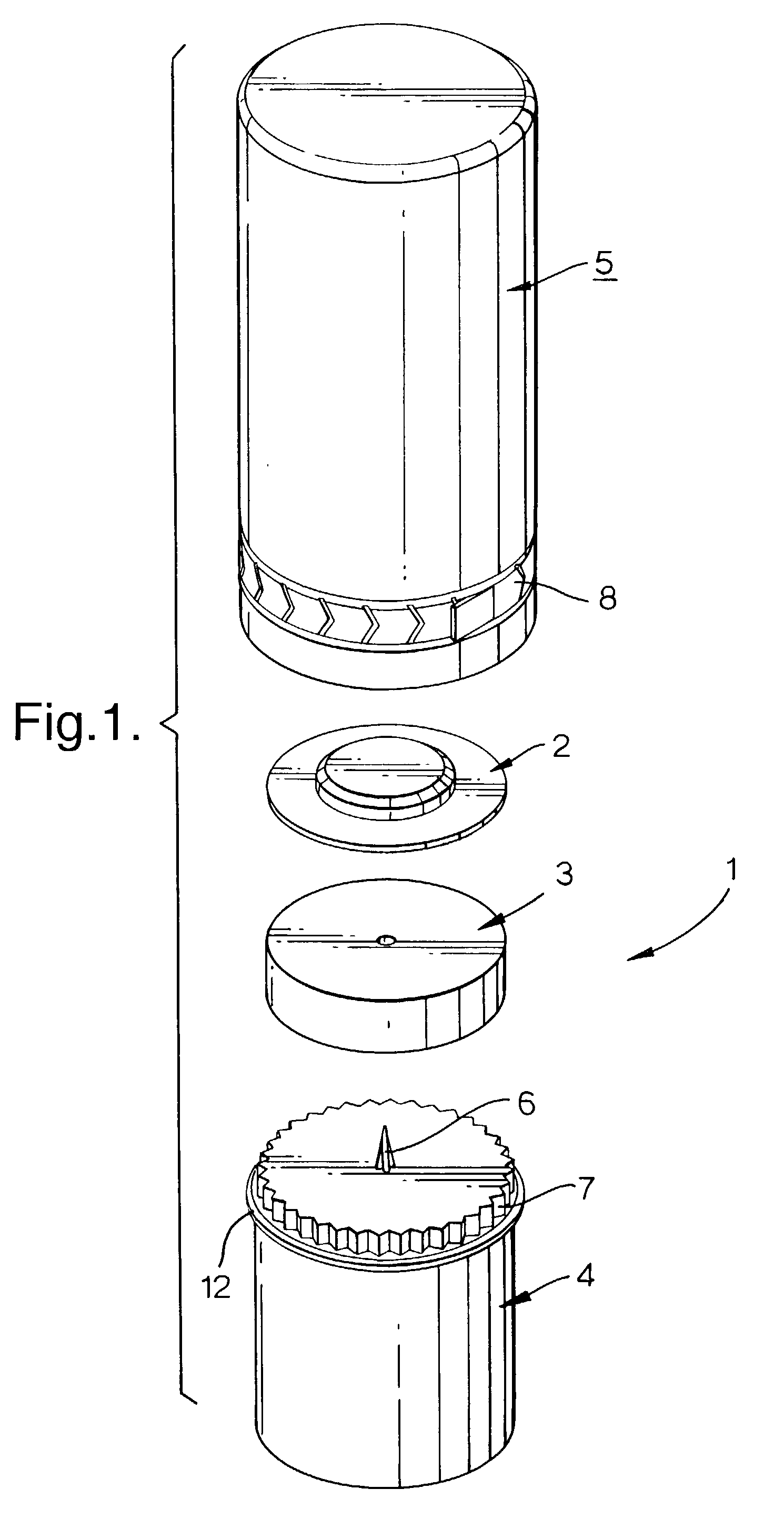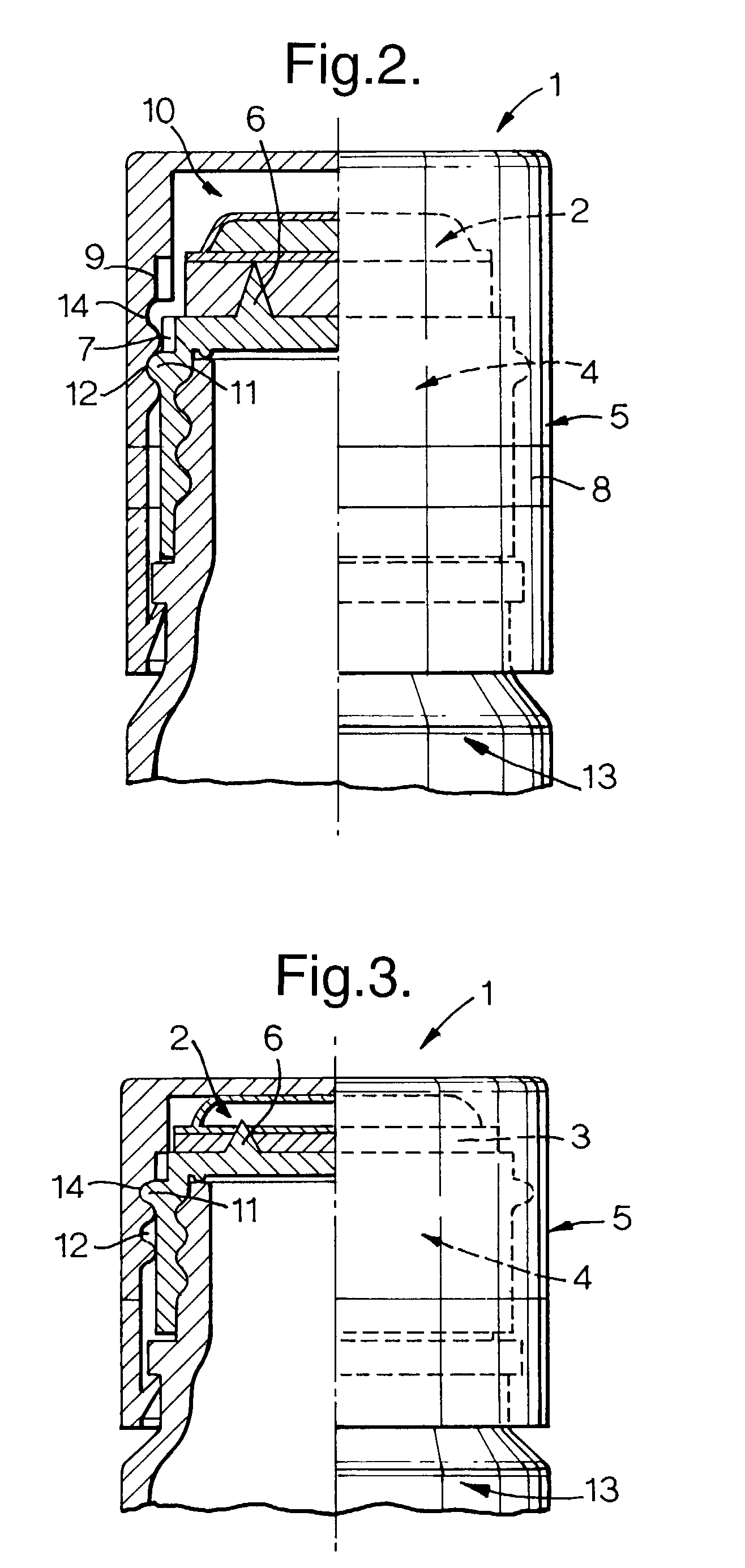Tamper evident closure
a technology of evident closure and bottle, which is applied in the direction of packaging, application, packaging, etc., can solve the problems of increasing the sophistication of counterfeiters, no longer effective measures, and virtually impossible for consumers to determine that the bottle has already been opened
- Summary
- Abstract
- Description
- Claims
- Application Information
AI Technical Summary
Benefits of technology
Problems solved by technology
Method used
Image
Examples
example 1
[0070] Preparation of Substrate Acid Solutions.
[0071] 5.0% solutions of tartaric, malic and citric acids was produced using distilled water. 200 grams of the solid acid was dissolved in 4.0 litres of distilled water and stirred for three minutes. A clear solution was obtained. This solution may then be spray coated onto the support.
example 2
[0072] Preparation of Sodium Hydroxide Solutions.
[0073] A 5.0% solution of sodium hydroxide was are produced using distilled water. 200 grams of sodium hydroxide was dissolved in 4.0 litres of distilled water and stirred for three minutes. A clear solution was obtained. This solution may then be spray coated onto the support.
example 3
[0074] Preparation of 1.3% methyl red solution is obtained as follows:
[0075] (1) 26 ml of the indicator methyl red were added to 1750 ml of light liquid paraffin and stirred well.
[0076] (2) The mixture was heated indirectly by using a water bath. The temperature of the water bath did not exceed 100.degree. C. The mixture was left in the water bath for 10 to 12 minutes with continuous stirring.
[0077] (3) The mixture was removed from the water bath and left to cool down to room temperature. A clear yellow solution was obtained by the end of this step. This indicator works on paper pads which have been treated with citric, tartaric or malic acids and changes color from yellow to red.
PUM
 Login to View More
Login to View More Abstract
Description
Claims
Application Information
 Login to View More
Login to View More - R&D
- Intellectual Property
- Life Sciences
- Materials
- Tech Scout
- Unparalleled Data Quality
- Higher Quality Content
- 60% Fewer Hallucinations
Browse by: Latest US Patents, China's latest patents, Technical Efficacy Thesaurus, Application Domain, Technology Topic, Popular Technical Reports.
© 2025 PatSnap. All rights reserved.Legal|Privacy policy|Modern Slavery Act Transparency Statement|Sitemap|About US| Contact US: help@patsnap.com



